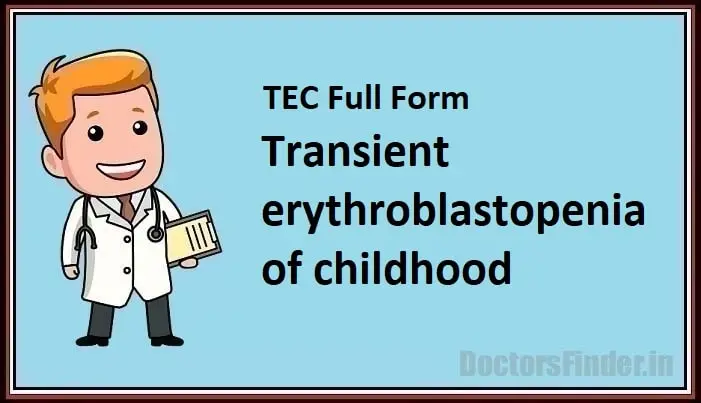The full form of TEC in medical term is “Transient erythroblastopenia of childhood.”
Transient erythroblastopenia of childhood (TEC) is a rare blood disorder primarily affecting young children. It is characterized by a temporary decrease in the production of red blood cells in the bone marrow, which can lead to anaemia.
TEC is believed to be an autoimmune disorder, meaning that the body’s immune system mistakenly attacks its cells. In the case of TEC, the immune system attacks the bone marrow cells that produce red blood cells, causing a temporary halt in production. The precise cause of this autoimmune response is not yet fully understood.
The symptoms of TEC can vary from mild to severe, depending on the degree of anaemia. Common signs include fatigue, weakness, pale skin, irritability, and a decreased appetite. Some children may also experience shortness of breath, dizziness, or fainting.
Diagnosis of TEC usually involves a complete blood count (CBC), showing a low level of red blood cells. Sometimes, a bone marrow biopsy may be necessary to confirm the diagnosis.
Treatment for TEC typically involves supportive care, such as blood transfusions and iron supplements, to alleviate the symptoms of anaemia. In most cases, the condition will resolve independently within a few months to a year, and the bone marrow will resume normal red blood cell production.

In rare cases, TEC may become chronic and require long-term treatment, such as immunosuppressive therapy, to control the immune system’s attack on the bone marrow cells.